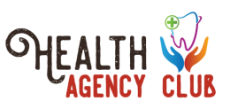Tooth extraction (ถอนฟัน, which is the term in Thai) is a surgical procedure to remove one or more teeth from your mouth. There are various reasons why a tooth may need to be removed, including:
- Tooth decay that has damaged the tooth beyond repair
- Tooth infection or abscess
- Impacted or wisdom teeth that are malformed or difficult to reach
- Severe gum disease
- Teeth fractured below the gum line.
- Preparation for dentures or bridgework
- For orthodontic reasons
Why Is Tooth Removal Important?
Tooth extraction is an important dental procedure to address several dental health issues and provide relief from oral pain, infection, and disability. It involves removing severely decayed or infected teeth that cannot be repaired – Left untreated, tooth decay and infection can spread and cause more severe health issues, extracting problematic teeth can relieve pain caused by inflammation, infection, and trauma, prevents spread of infection – removal removes the source of dental infections that can then spread to surrounding teeth and tissues. It creates space for bridges and dentures by extracting teeth before bridges and dentures ensures a good fit and function and also allows for proper alignment of remaining teeth – removals may be needed in orthodontic treatment to align jaws and teeth.
Before undergoing a tooth removal, there are certain precautions you should take:
See your dentist well in advance. Don’t wait until the last minute when your tooth is severely infected. This gives your dentist time to assess your tooth properly, determine the best removal procedure, and schedule surgery. Stop smoking completely. Smoking can delay healing and increase the risk of complications after an removal. Quit at least two weeks before your procedure. Stop taking blood thinners. Certain medications like aspirin, ibuprofen, and warfarin can increase bleeding during and after the removal. Discuss with your dentist about stopping these medications at least five days before your procedure. Practice good oral hygiene. Brush and floss your teeth thoroughly the night before and the morning of your surgery to reduce bacteria in your mouth.
Take any antibiotics prescribed. Take antibiotics as your dentist recommends before the removal to reduce the risk of infection afterward. Have someone drive you home. You will likely be given a local anesthetic which can cause temporary numbness, dizziness, and disorientation after the procedure. Arrange for someone to drive you home after the removal. Stock up on soft foods. Have soft foods like yogurt, mashed potatoes, scrambled eggs, and broth on hand that will be easy for you to eat in the first few days following the removal when your mouth may be sore and swollen.
Following these precautions can help ensure your tooth removal procedure goes as smoothly as possible, with a reduced risk of complications afterward. Let me know if you have any other questions!




